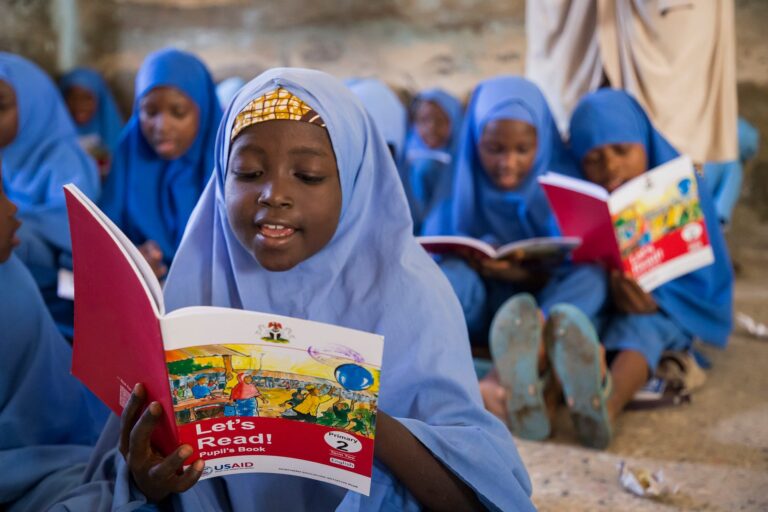The decision by the governments of Katsina, Kebbi, Kano, and Bauchi states to shut down all public and private schools for the entire month of Ramadan has sparked mixed reactions among stakeholders.
The Sultan of Sokoto, Sultan Sa’ad Abubakar III, had on Friday declared Saturday, 1st March, as the first day of the Holy Month of Ramadan.
To allow students, teachers, and other education stakeholders to fully observe the holy month, the governments of the four northern states declared a break in academic activities.
According to Kebbi State’s revised 2024/2025 academic calendar, the second term ends on 28 February, while the Ramadan break commences from 1st March – 7th April.
The Chief Press Secretary to the state governor, Ahmed Idris, explained that the state government approved the break to allow the Muslim community within the state’s educational institutions to engage fully in fasting, prayers, and other religious activities associated with Ramadan.
Similarly, the Katsina government directed all schools in the state to shut down for Ramadan. The Commander General of the state’s Hisbah Board, Aminu Usman in a statement warned all schools, particularly, the privately owned schools against non-compliance.
“In accordance with the Katsina State government’s directive, all private schools are required to close for the Ramadan period to allow pupils to fully observe the holy month. The directive includes extra lessons, please. The Hisbah Board urges all school proprietors to strictly comply with this directive as non-compliance will not be tolerated,” part of the statement read.
Also in Bauchi State, the ministry of education, directed all schools operating in the state, including privately owned and faith-based, to be closed for the next 40 days.
The state’s Ministry of Education recently released the 2024/2025 academic calendar, outlining key dates for the second and third terms. According to the schedule, the second term began on 6 January, and was set to run for 11 weeks, with a mid-term break from 1 – 5 March, extending to 6 April, when academic activities are expected to resume.
Just like the other three states, Kano state government also approved 28 February, as the date for 2nd term vacation to all day and boarding public/private primary and secondary schools in the state ll
The decisions made by the four states have sparked reactions from various quarters, drawing applause from some religious leaders while raising concerns among educationists and other stakeholders.
Stakeholders react
The Vice Principal of MODAS College Knowledge Centre, Ibadan, Latifat Morakinyo shared her perspective on the issue of school closure for Ramadan, stating that instead of suspending academic activities, adaptive measures can be introduced to help the fasting students and staff manage the situation.
Mrs Morakinyo noted that while some students and staff may struggle with academic activities during Ramadan, others may find it easy to cope.
“Academic performance during Ramadan varies among students. Some manage their studies effectively, while others may experience fatigue or difficulty concentrating due to fasting. With proper time management, balanced nutrition, and adequate rest, students can maintain strong academic performance during this period.
“Rather than a full suspension, implementing adjustments such as flexible class schedules, lighter workloads, or online learning options could better support students. This measure allows them to balance their academics with religious observance without compromising their progress,” she submitted.
She therefore urged students to use the Ramadan period as a model for shaping themselves for academic development by planning study sessions when they wake up early in the morning to eat (suhor), reduce workload and rest well during day time.
An Islamic scholar, Mahfouz Adedimeji, opined that there is nothing wrong with closing schools during the fasting period if it is established that students don’t perform optimally when fasting.
Professor Adedimeji who is the vice chancellor of African Schools of Economics, Nigeria, maintained that the timing of holidays shouldn’t cause a controversy as long as academic sessions are completed within the scheduled time frame.
“Ordinarily, people just like to make a mountain out of a molehill. Education belongs to the legislative list. Ramadan lasts for just a month. If schools structure their academic calendar in a way that considers the environment and acknowledges that Muslim pupils may struggle to perform optimally while fasting, I don’t see anything wrong with that.
“If those conditions are met, the holiday or break can fall anywhere. If it is simply for the convenience of the majority, I don’t see why people should have a problem with that,” the professor of English Pragmatics said.
Contrary to the Islamic scholar’s view, the Chief Executive Officer of Bible Society of Nigeria (BSN), Pastor Samuel Sanusi stated that religion shouldn’t interfere with people’s welfare and education despite its importance.
According to him, Christians in the states where schools were shut down for Ramadan have the right to complain since they are no partakers in the religious observance.
He emphasised the need to balance religion and education in a way that one does not affect the other. “For any nation to grow and develop, we need education. But what kind of education do we need? Should it be religious education, secular education, or a balanced education? I am an advocate of balanced education.
“Religion is a part of our lives, but it should not interfere with people’s welfare and education. What about the Christian parents in those states? What happens to their children? They have every right to complain because their kids are being forced to stay home for a fast they are not participating in. Nigeria is one of the few countries where most public holidays revolve around religious festivals, and the government funds pilgrimages to Mecca and Jerusalem. What real impact do these religious activities have on national progress, or are they merely a jamboree?” he questioned.
Also, a professor of Arabic and Islamic Studies at the University of Ibadan, Afis Oladosu, stated that schools in Saudi Arabia do not close for Ramadan except in extreme conditions. While Oladosu acknowledged that the state governors may have their reasons for implementing such a rule, he urged stakeholders to listen to them to understand their rationale.
In the same vein, the president of the Christian Association of Nigeria (CAN), Archbishop Daniel Okoh, described the closure of schools for Ramadan, as a ‘violation of students’ rights and a ‘dangerous signal’ for governance. He expressed concern over the decision, stating that it disrupts education and worsens the already high rate of out-of-school children in the affected states.
According to him, the absence of broad consultation before implementing the directives is troubling, noting that policies affecting diverse populations including Muslims, Christians, and others, demand transparent, inclusive dialogue with parents, educators, religious leaders, and school proprietors, among others.
“The absence of such engagement erodes trust and unity in a pluralistic society. Even in Saudi Arabia and the United Arab Emirates (UAE) where Islam is central and Ramadan is deeply revered, schools remain open. Transparency is essential, and we expect these governments to act in good faith by promptly engaging all parties.
“The education of our children and the unity of our states are at stake. Should these rights face further jeopardy or should dialogue fail to deliver justice, CAN is prepared to seek legal recourse,” Okoh warned.


